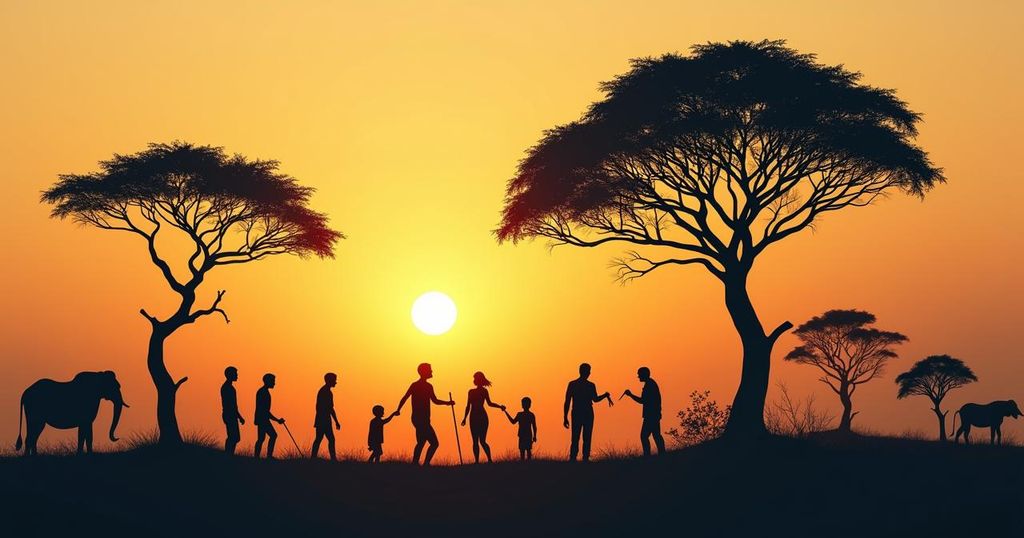As the deadline for achieving the Sustainable Development Goals approaches, only 17% of these objectives have been met, with experts attributing failures largely to climate change. The article critiques the ongoing deforestation practices prioritized by powerful entities and highlights the negative effects of this on countries like Liberia, including increased poverty and violence. It advocates for transformative governance and good scientific practices to foster progress and stability.
As the year 2030 looms closer, only a meager 17% of the Sustainable Development Goals (SDGs) have been achieved, and various experts attribute these disappointing results to the impacts of climate change. They argue that adverse weather conditions hinder progress towards these long-established objectives, especially affecting the majority of countries in the Global South. In a critical observation, Togba-Nah Tipoteh asserts that influential entities and leaders are prioritizing deforestation over the much-needed reforestation efforts. This disconnect is further exemplified by the United Nations Secretary General’s call for global assemblies that ostensibly address climate change while obscuring the underlying causes of stagnation in meeting the SDGs, a narrative supported by financial interests from affluent nations such as Saudi Arabia. Furthermore, the effects of deforestation are starkly visible in Liberia, where the destruction of forest areas has resulted in dire consequences including increased human-wildlife conflict, flooding in communities, and a consequent loss of life. The educational infrastructure suffers as students are compelled to learn in inadequate conditions, despite Liberia possessing abundant high-quality timber resources. This educational deprivation perpetuates a cycle of poverty, stymies economic development, and ultimately paves the way for societal instability, which can manifest as violence or political upheaval. A recent study by Afrobarometer in 2022 highlights that a significant portion of the Liberian population feels the nation is headed in an adverse direction. Addressing these issues requires a commitment to sound scientific principles that promote public awareness and motivate reforms within the electoral system, aiming for a just governance framework. Such transformations are crucial in electing leaders who can foster justice, peace, and progress, not only in Liberia but across the globe.
The article addresses the pressing concerns stemming from the slow progress towards achieving the Sustainable Development Goals, particularly in impoverished nations of the Global South. It highlights how climate change has been identified as a primary factor by global experts for these shortcomings, while also critiquing the actions of powerful entities that continue deforested activities. The implications of these actions are laid bare in the context of Liberia, with negative impacts on education, economic growth, and social stability leading to increased violence and civil unrest. The article encourages reforms in scientific approaches and governance that prioritize justice and development-based solutions.
In summary, the article emphasizes the urgent need to shift the narrative surrounding climate change and the Sustainable Development Goals. It critiques the current policies that favor deforestation and exposes the detrimental impact on vulnerable populations, particularly in Liberia. Sustainable progress hinges on good governance, sound scientific practices, and a collaborative effort towards achieving educational and economic stability. Without these changes, the cycle of poverty and violence is destined to continue, obstructing any path to peace and prosperity.
Original Source: frontpageafricaonline.com







